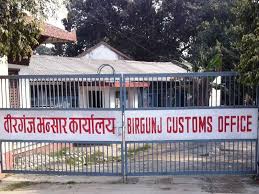Relationship between Bangladesh’s Zero-Tolerance for terrorism and Northeast India’s peace and prosperity

Bangladesh has always been a shining example of religious unity and peace. “Secularism” is not only a phrase engraved in Bangladesh’s constitution as one of the four essential principles of the state, but it is also an automatism that molds Bangladeshi people’s social sustenance.
However, there has been an increase in the number of tremors in the non-perpetual tranquillity in the name of terrorism and religious fanaticism. Although Islamist groups were always active in politics, Islamist factions first arose in 1989 in Bangladesh and ran wild in the years that followed with the sole goal of establishing a Caliphate in the area. The attacks on Udichi, the bombing of RamnaBatamul, the countrywide series of bombings, the targeting of bloggers, the rise of Bangla Bhai and ShayokhAbdur Rahman all lowered public morale and drove the government to establish a fast force (RAB) to put a stop to them.
On July 1, 2016, the terrorist assault on the Holy Artisan, a ritzy bistro only a stone’s throw away from the American Embassy, tarnished all efforts and predominance against terrorism. The Dhaka bombing, along with a series of subsequent incidents, marked the beginning of a new era of terror in Bangladesh. Terrorists were attempting to engage the state with modern weaponry via an encrypted communication channel. Following that incident, Bangladesh initiated a full-fledged war on terrorism, which was generally successful.An early interview with Tamim Ahmed Chawdhury, the architect of the Holy Artisan assault, in ‘Dabiq’ (the online journal of the Islamic States of Iraq and the Levant) discloses that the grounds for using Bangladesh for terror strikes are the geopolitical advantage and near proximity to India. Bangladesh has frequently been used as a launch pad for assaults against India, not just from outside, but also from within, by Islamist terror groups.
Bangladesh, the subconscious guardian of its nearest neighbor, had frequently served as a coadjutor in combating insurgencies in India’s North East area. Aravinda Rajkhowa, the Chairman of the United Liberation Front of Asom (Ulfa), was arrested and handed over to India in 2009; Anup Chetia, a ULFA stalwart, was arrested in 1997 and deported in 2015 after 18 years in prison in Bangladesh; and ULFA leader Ranju Chowdhury alias Rattan Sarker was arrested in 2010. Bangladesh handed up the entire ULFA leadership as well as the leaders of the Bodo insurgents to India. Bangladesh’s zero tolerance attitude toward terrorism had greatly benefited India, as North-East insurgencies were a major headache for the country.
India may have returned the favor by secretly assisting Bangladesh in apprehending the fugitive assassin of ‘Bangabandhu’ Sheikh Mujibur Rahman. It is well known that India and Bangladesh have extraordinary real-time cooperation and collaboration amongst their intelligence organizations.
India has consistently praised Bangladesh’s zero-tolerance approach against terrorism, with Indian Prime Minister Narendra Modi, Indian President Ramnath Kovind, Foreign Minister, Home Minister, and Chief Ministers of surrounding states expressing their gratitude and gramercy.
For the time being, the insurgency is at its lowest in India’s north-eastern region, which has prompted Chief Minister, Hemant Bishwa Sharma, to express thanks to Bangladesh and his desire to improve business and connection between Bangladesh and North-East India, as now they can concentrate on something other than insurgencies. It will happen eventually, benefiting both nations and boosting connections. Just as Bangladesh extended its hand to provide peace to the area, India requires Bangladesh’s aid to ensure the region’s growth. India wishes to access and link to the difficult-to-reach region via transit from Bangladesh, to which Bangladesh answers with a counter-proposal of transshipment. Last year, a trial run was conducted, therefore opening a new door of economic possibilities.
Regional commerce in South Asia remains below potential, but leaders in India and Bangladesh are forging strong bilateral relations to spur economic growth and prosperity. The MaitriSetu, or Friendship Bridge, erected across the Feni River is a critical corridor that will allow this to happen. Several connection channels have been resurrected, and while only a few projects are now active, many more are in the works. If a seamless connection is built, time and costs will be minimized, and both sides of the border would benefit immensely. This hard-earned ephemeral tranquility in the Northeast can only be eroded if livelihood and trade are harmed. Prosperity in the Northeast, like peace, may come to take Bangladesh’s hand.
Though insurgency is at its lowest; internal turmoil in seven sisters bubbled again last year. It is past time for India to focus on improving the livelihoods of the people in the Northeast. Connectivity and infrastructural development with Bangladesh are essential for this. This will also open up new routes through Bangladesh to the northeast, Bhutan, and Nepal.
There is an age-old belief that the interconnectedness of economy, survival, stability, development, and security lessens the likelihood of wars between states, particularly neighbors. Because of their shared interests, future, and destiny, India and Bangladesh’s stability, peace, growth, and security are inextricably intertwined and interdependent.
A peaceful neighborhood benefits business and the economy. The people of Bangladesh and India desire peace and prosperity.

Prabhu Group accused of embezzling Rs 6 billion from 4,000 cooperatives

Business groups condemn violence, demand compensation to loss

Security beefed up in Valley in view of mass rallies

Apex Court declines interim order for Ghising

Global IME Bank, IFC ink deal to boost digital banking

Birgunj customs sees imports worth Rs 390 billion in 8 months

Nepal faces trade deficit of 2.68 billion with Bangladesh


Feedback